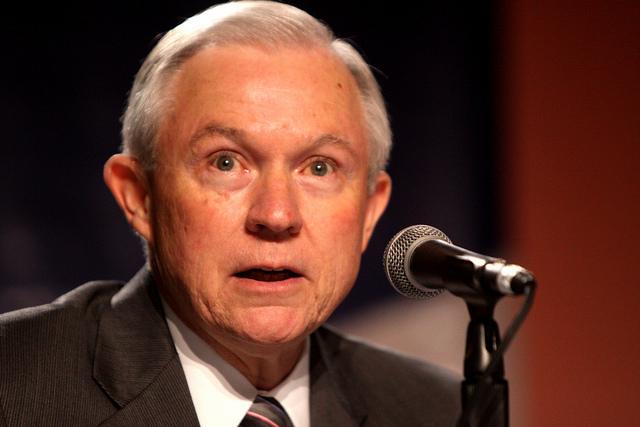By Noa Dalzell, political columnist
Election Day 2016 will forever be ingrained in my memory. I went to bed that night with my face drenched in tears, replaying in my head some of the most painful moments of the election. The possibility of Donald J. Trump truly holding the highest office in the land seemed so far-fetched, so unlikely, that when I sat in my residence hall’s common room, surrounded by my peers, and watched the shocking results inundate the television screen, the only response I could muster was tears.
I cried myself to sleep that night, and I cried the next day when Hillary Clinton gave her emotional thank-you speech to the American people. I cried for the LGBTQA+ community who went to bed knowing their future vice president supported conversion therapy. I cried for Americans with disabilities who watched in horror as Trump mocked disabled journalist Serge Kovaleski. I cried for rape survivors who had to relive their trauma as they watched the infamous tape that revealed a 59-year-old Trump bragging about grabbing women’s genitals without their consent. I cried for for little girls who witnessed the normalization of sexism and misogyny. I cried for children of immigrants, for people of color, for the Muslim community, for all the minorities who woke up on Nov. 9 with the knowledge that the hate Trump spewed against them had been accepted and validated.
But a few days after the election, I had to wipe my tears and closely follow the chaos that followed. No, we had not hit rock bottom; yes, things could get worse. Just one day removed from Trump’s unlikely inauguration, I urge other disheartened liberals to do the same. In the past two months, not only has Trump’s discriminatory rhetoric continued, but he has also made his first impactful decisions as president through his cabinet selections. His appointments have been highly controversial and include Jeff Sessions, an accused racist, for attorney general, and Scott Pruitt, a climate change denier, to head the Environmental Protection Agency.
Throughout the next few weeks, I will be profiling some of Trump’s worst cabinet picks. While the Senate begins to review and most likely confirm these appointments, it is imperative that we, as people who live in America and are affected by its policies, know what effects these individuals could have on the political landscape. In a time where tolerance, equality and acceptance have all been called into question, it is our duty to ensure that the administration that represents us will protect us. Trump is one man, one puzzle piece of the upcoming administration, but who he surrounds himself with is just as critical as he is.
Jeff Sessions for Attorney General
The name Jeff Sessions has been tossed around in the press quite a bit since Donald Trump picked him for attorney general. Not only was Sen. Sessions (R-Ala.) Trump’s first pick for his presidential cabinet, but he is also a controversial character with a complicated history, particularly when it comes to immigration and race relations. Sessions has represented Alabama in the U.S. Senate since 1997. He has become well-known for his fervent opposition to illegal immigration and advocacy for the limitation of legal immigration as well.
Session’s appointment is detrimental to the LGBTQA+ community.
He has proposed a national amendment to ban same-sex marriage and opposed the repeal of the Don’t Ask Don’t Tell Act, which forced gay and lesbian military members to hide their sexualities. In addition, Sessions voted against the Matthew Shepard and James Byrd Jr. Hate Crimes Prevention Act, which extended federal hate crime protection to victims of crimes due to gender, sexual orientation and gender identity, saying federal involvement in these hate crimes was unnecessary. As attorney general, Sessions would oversee the Department of Justice and serve as the chief law enforcement officer and lawyer of the federal government. If Sessions doesn’t believe violence against LGBTQA+ folks constitutes hate crimes, what makes us think he will protect that population as part of the Trump administration?
Sessions has been frequently accused of racism. In 1986, President Ronald Reagan nominated Sessions for a judgeship in the U.S. District Court for the Southern District of Alabama, an appointment that was famously blocked due to “reasonable doubts” that Sessions could be “fair and impartial.” In that hearing, many of his former colleagues in the Department of Justice spoke of racist remarks he had made to them in the past. They testified that he frequently used the n-word and thought the Ku Klux Klan was “okay, until he learned that they smoked marijuana.” Sessions also called a white civil rights attorney a “disgrace to his race.” Accusations of racism have plagued his career, and in 1994, former Massachusetts Sen. Edward Kennedy dubbed Sessions a “throwback to a shameful era.”
Sessions is staunchly anti-immigration. He has been named “Amnesty’s Worst Enemy” by The National Review, and he has advocated curbing future legal immigration as well. As attorney general, Sessions would oversee the Executive Office Immigration Review, the courts where immigrants make their cases on why they should not be deported. In addition, a Sessions-led Department of Justice would pursue relentless lawsuits against sanctuary cities, leaving the security of the country’s 11 million undocumented immigrants in question. While immigration remains a contentious issue in America, Sessions does not represent the Republican viewpoint—he represents the extreme, minority opinion.
Sessions opposes sensible gun legislation. With an A+ rating from the National Rifle Association, Sessions has a voting record on gun laws that ignores the gun violence epidemic that has plagued our country in recent years. He has voted to loosen license and background checks at gun shows and allow firearms on checked Amtrak bags.
He is a threat to the health care of the most vulnerable populations in society: Children, the poor, the disabled and American veterans. Sessions has a zero percent rating from the American Public Health Association and a voting record that exemplifies his apathy toward public health protection. He has opposed expanding access to Medicare and Medicaid for low-income people and voted no on expanding the State Children’s Health Insurance Program to include two to four million children. When the Individuals with Disabilities Education Act was introduced, mandating mainstream education for the disabled population, Sessions vehemently opposed it. He described disabled children as “disruptive,” “violent” and the “single greatest obstacle educators face.”
Even when it comes to the health protection of American veterans, Sessions has proven himself to have an unhealthy, extreme opinion. In response to a series of scandals over veterans experiencing delays to their health care, a bipartisan measure was introduced to expand staffing in the Department of Veterans and insure some private health care access for veterans. This bill was passed unanimously in the Republican-controlled House, but Sessions nonetheless opposed it.
Sessions’ ability and willingness to protect the most marginalized populations in American society is doubtful. When Trump mocked a disabled New York Times journalist on the national stage, he shook the disabled community and a significant portion of America. But there was still a hope—albeit a fleeting hope—that these were just words, that this was just a rejection of political correctness and that when it came to true governing, to legislation, to his presidency, the disabled community would be protected. When Trump failed to disavow the Ku Klux Klan, there was still a desire to blame the appalling interview on a lack of political experience, on misspoken words. Trump wouldn’t have racist policies, his supporters said. It was just one bad interview. But when he selected Sessions to serve as attorney general, the hope that maybe, just maybe, this was only rhetoric, quickly dissipated.
Photo courtesy Gage Skidmore, Creative Commons









